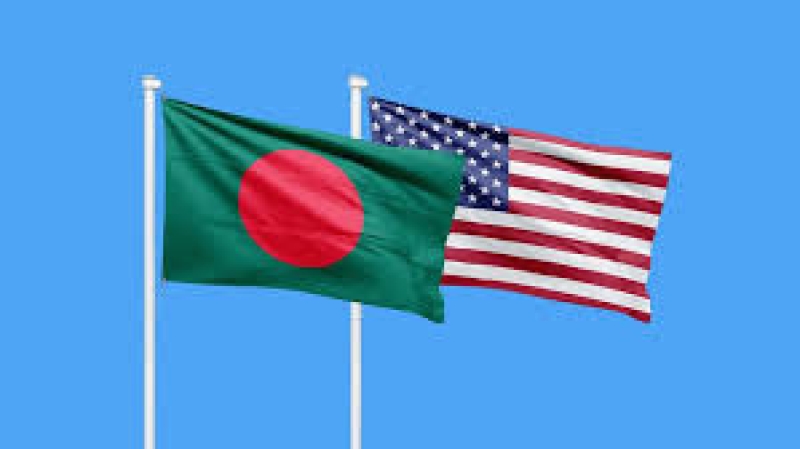- Puppet show enchants Children as Boi Mela comes alive on day 2 |
- DSCC Admin Salam’s drive to make South Dhaka a ‘clean city’ |
- 274 Taliban Dead, 55 Pakistan Troops Killed |
- Now 'open war' with Afghanistan after latest strikes |
- Dhaka's air quality fourth worst in world on Friday morning |
Bangladesh to Offer Zero Tariff on 100 More US Products

In a strategic move aimed at reducing its growing trade deficit with the United States, Bangladesh has announced plans to offer zero tariffs on 100 additional US products. This initiative is expected to foster stronger bilateral trade relations and help ease trade imbalances between the two nations.
Commerce Adviser Sk Bashir Uddin communicated this decision in a letter to the United States Trade Representative (USTR) on Monday. The letter highlights Bangladesh's commitment to expanding its tariff-free list, which currently includes 190 product lines. According to the letter, "Another 100 product lines are being considered to be included in the zero tariff schedule."
The letter further elaborates on the country’s broader trade strategy, including efforts to engage in a long-term LNG deal with the US and increase private equity investments in Bangladesh's healthcare sector, in exchange for further tariff relief. "Our government is exploring several avenues to reduce tariff rates, eliminate non-tariff barriers, and introduce reforms aimed at enhancing mutually beneficial trade between our two nations," the letter states. These reforms are focused on simplifying customs procedures, enforcing intellectual property rights, and protecting trademarks and patents, among other measures.
In addition to tariff reductions, Bangladesh is also eyeing other trade initiatives, including the establishment of US car manufacturing plants in Bangladesh and the increased import of agricultural goods such as soybeans, wheat, and cotton. The government is actively encouraging private US investors to expand into Bangladesh’s healthcare and services sectors, a move that could bolster the nation's economic growth while addressing trade imbalances. "These steps, among others, will play a pivotal role in narrowing the trade gap between our countries," the Commerce Adviser asserted.
The letter also touches on the broader context of trade relations, acknowledging that since the withdrawal of preferential access for Bangladeshi exports to the US, a 15% tariff has been imposed on all goods exported from Bangladesh to the US. In contrast, the US faces a weighted average tariff of just 6.10% on Bangladeshi products, with certain items, such as raw cotton and steel scrap, subject to even lower tariffs. Notably, Bangladesh remains one of the largest importers of US cotton, which plays a significant role in its booming ready-made garment industry.
Despite these challenges, Bangladesh is committed to maintaining open dialogue and collaboration with the US to remove any trade barriers and resolve disputes that may hinder bilateral trade. "We have held several productive meetings with the US Embassy’s trade wing in Bangladesh to identify and address these barriers, and we remain optimistic about our efforts to foster a more balanced trading environment," the letter reads.
The letter also underscores the government's determination to pursue a constructive and forward-looking approach to strengthening ties with the US. "Under the leadership of Chief Adviser and Nobel Laureate Professor Dr. Mohammed Yunus, we are fully committed to taking all necessary steps to engage with your esteemed department and ensure that both countries benefit from enhanced trade relations," it concludes.
Earlier in the day, Chief Adviser Professor Yunus sent a separate letter to US President Donald Trump, requesting a three-month postponement of the reciprocal tariff measures recently imposed on Bangladesh. The tariff increase, which took effect on April 2, levies a 37% tariff on Bangladeshi goods, in retaliation for duties imposed on US products. Similar tariffs were also announced for other countries, including India, China, and the European Union.
This move by Bangladesh is part of a larger effort to engage in meaningful trade reforms and expand economic cooperation with the United States, aiming for a more balanced and mutually beneficial partnership.

